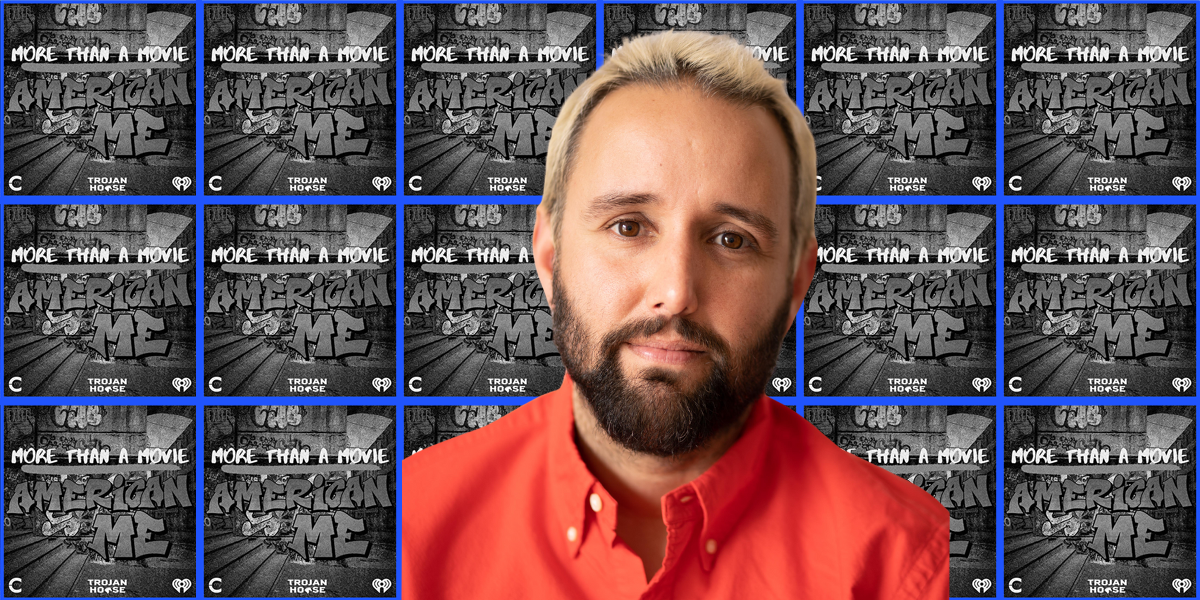When American Me, a film about the Mexican prison gang La Eme, came out in 1992, it was quickly surrounded by controversy. The film’s subject, the gang’s relationship to the film, and their violent reaction tainted the film’s reputation before it had a chance to go big.
It’s been three decades since American Me hit the world’s stage and plenty of questions remain unanswered. So, Emmy-nominated producer and owner of Trojan Media, Alex Fumero set out to explore the film’s legacy in a new podcast series More Than A Movie: American Me, produced in collaboration with Exile Content Studio and iHeartMedia’s My Cultura Network.
LatinaMedia.Co sat down with Fumero to discuss his decision to dig into the film’s past and what he found out by doing so.
First, you need to know (if you don’t already) that American Me has become a folk tale of sorts with disputes looming over the accuracy of how it showed La Eme engaging in organized crime, drug dealing, and acts of sexual assault. Multiple people were murdered after the film came out as retribution for their role in depicting the gang.
[American Me was] a movie directed by a Latino, starring a mostly Latino cast, the crew was mostly Latino, the subject matter was Latino, and then what happened to it? Because of the [tragic] events, it got buried. This is a travesty
Alex Fumero
Director and star of the film, Edward James Olmos made American Me to help prevent our community from joining gangs – the idea was to show the hopelessness that often surrounds such a path. And the film was in many ways the antithesis of the mob life genre, as embodied in films like The Godfather or Scarface, which could valorize their mafia protagonists.
To Fumero, one of the most important aspects of revisiting American Me’s story was understanding how the murders and rumors prevented the film from succeeding.
“[American Me was] a movie directed by a Latino, starring a mostly Latino cast, the crew was mostly Latino, the subject matter was Latino, and then what happened to it?” Fumero asked. “Because of the [tragic] events, it got buried. This is a travesty. This could have been our Godfather or at the very least the Chicano Godfather.”
By conducting interviews with actors who participated in the film and former La Eme members, Fumero explores why the aftermath of the film seemingly resulted in the opposite of what Olmos hoped for – not deterring people from joining gangs but rather showing the gang’s power.
Fumero can imagine an alternate reality where the film catapulted Chicano acting careers and set up Olmos to have an expansive directing career. Instead, Olmos has directed only a few films since the release of American Me. “That kind of broke my heart and made me think this is also the 30th anniversary of us getting fucked over,” Fumero told LatinaMedia.Co.
That kind of broke my heart and made me think this is also the 30th anniversary of us getting fucked over
Alex Fumero
Exploring the idea of what American Me could have been wasn’t an easy feat for Fumero. Despite the film being decades old, many of the sources he hoped to feature refused his calls out of fear or only talked to him off the record.
“I think that the [aftermath of the film] sent the message that when you tell lies about a gang, the gang asserts itself,” Fumero said. “From just the people who I’ve been able to talk to, I don’t think the film served the purpose that Olmos wanted it to.”
While Fumero won’t give away too much about the message listeners should take away after finishing his podcast, he did say it’s well worth listening through the final episode.
In the end, he hopes that the series brings clarity to the speculation while refocusing the narrative around American Me on the achievements of the people who made it.

